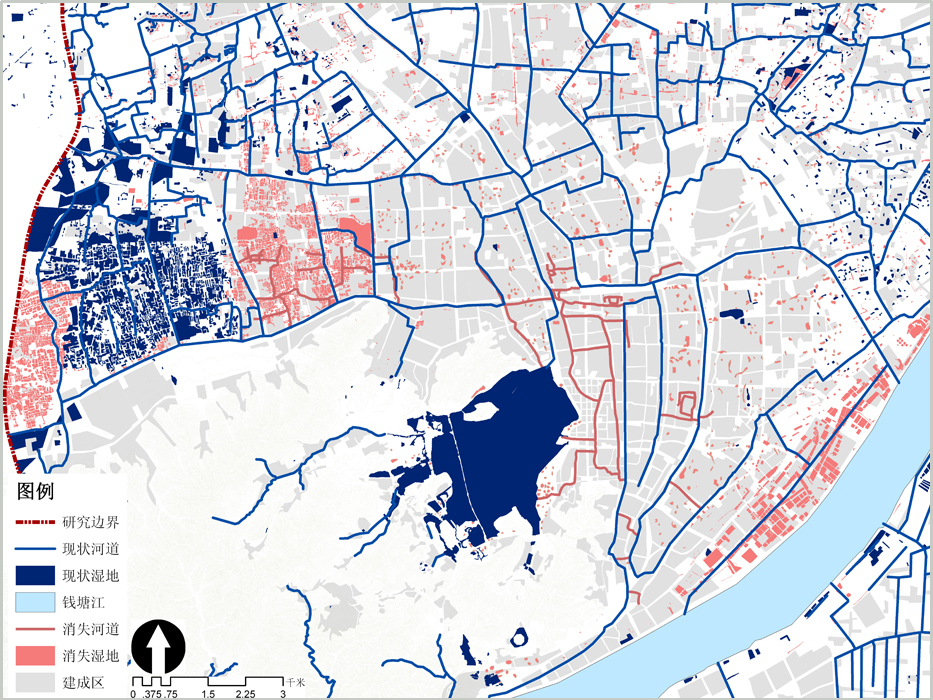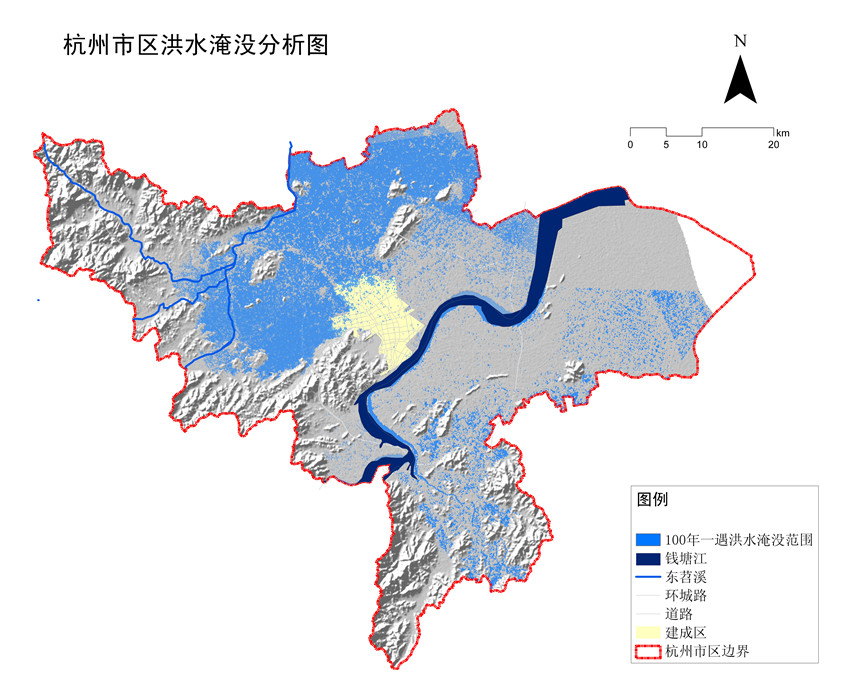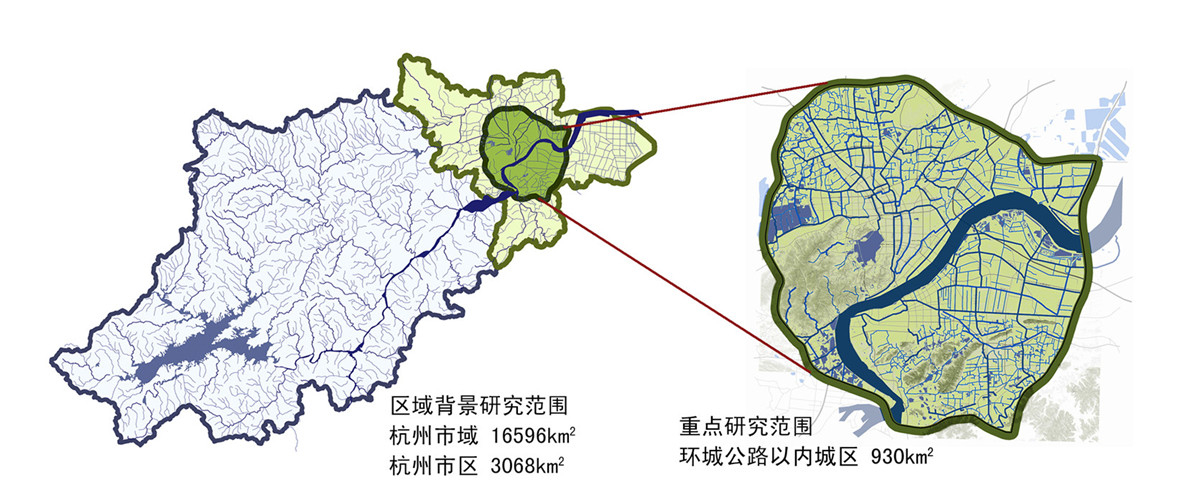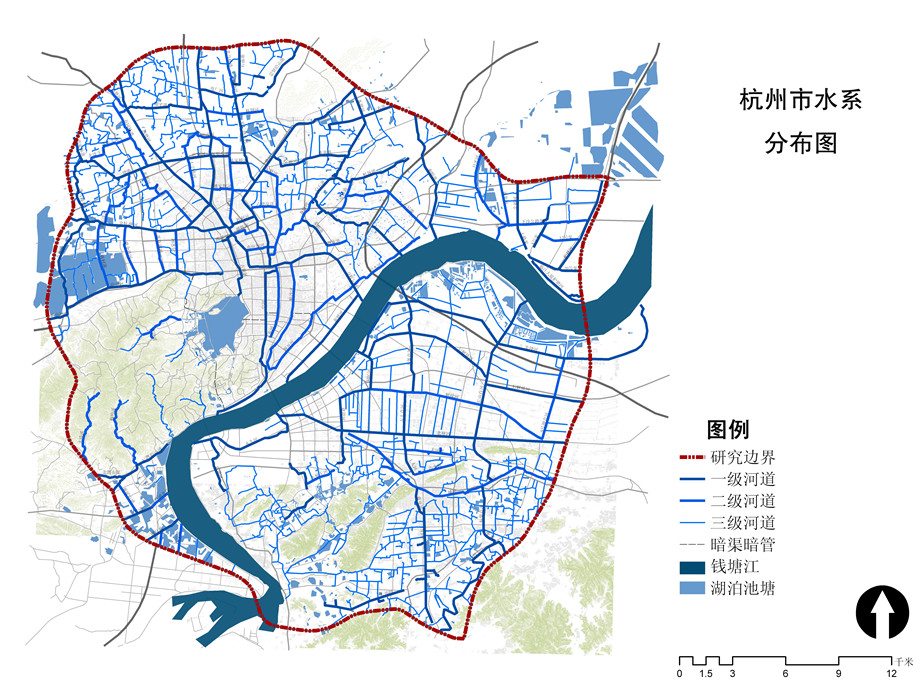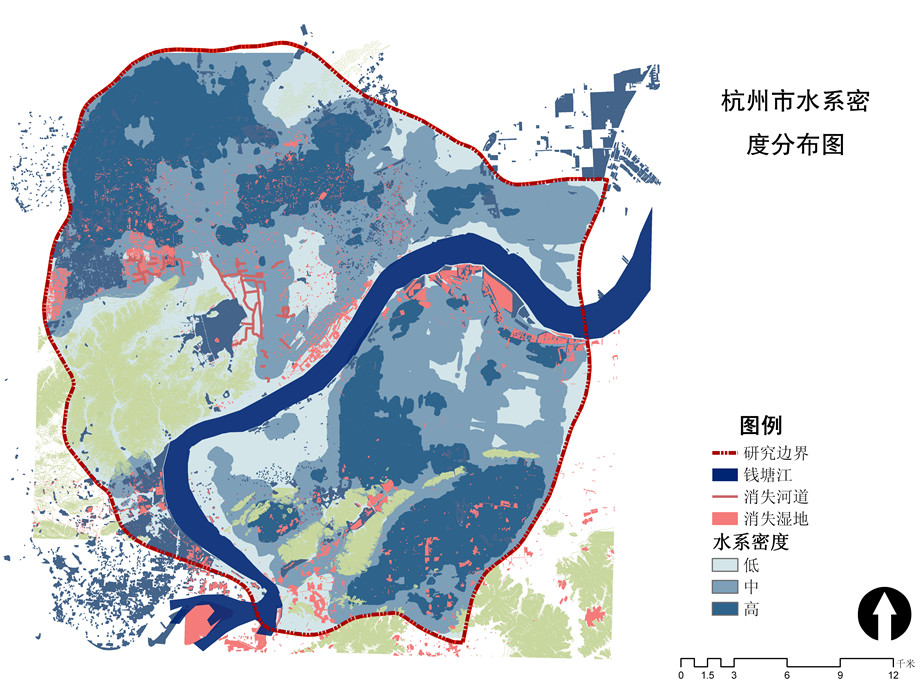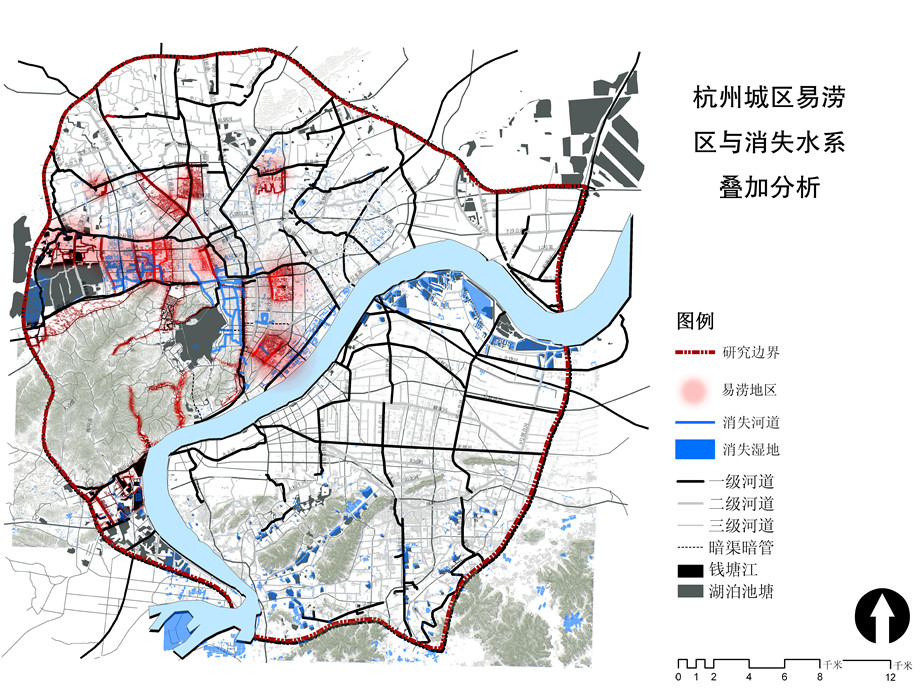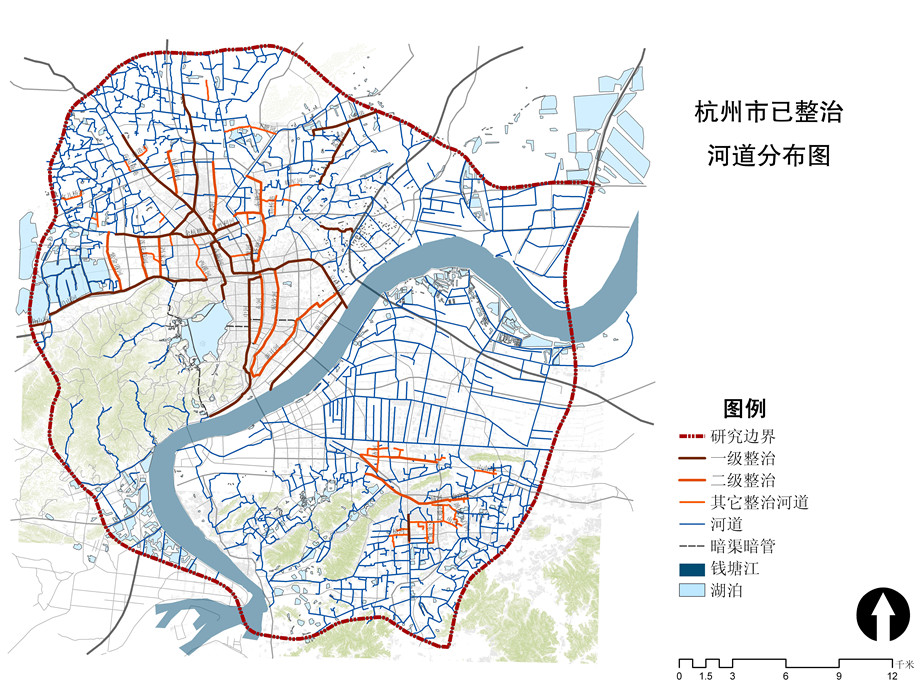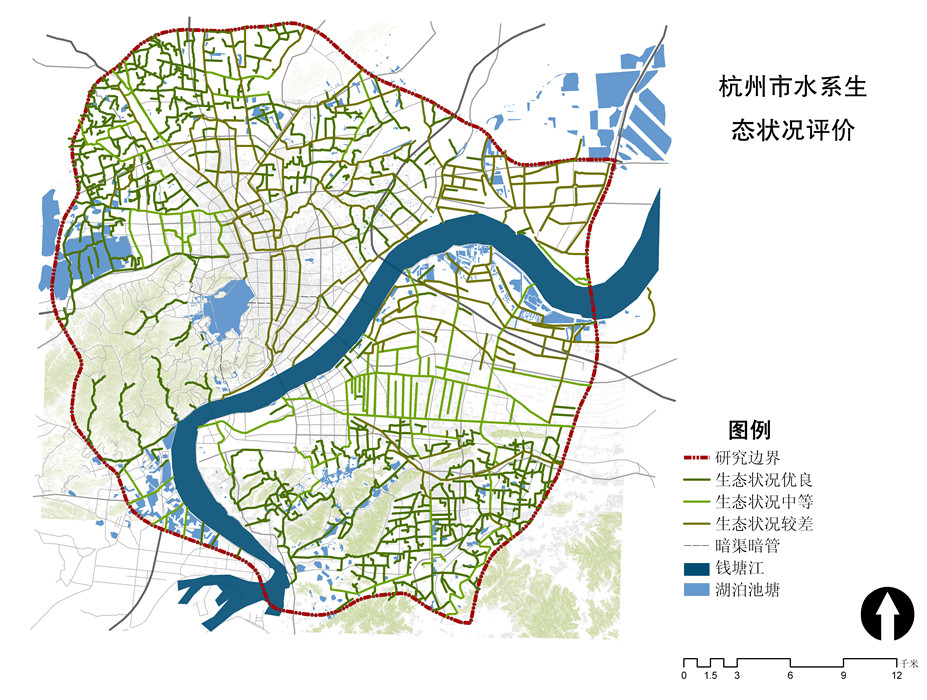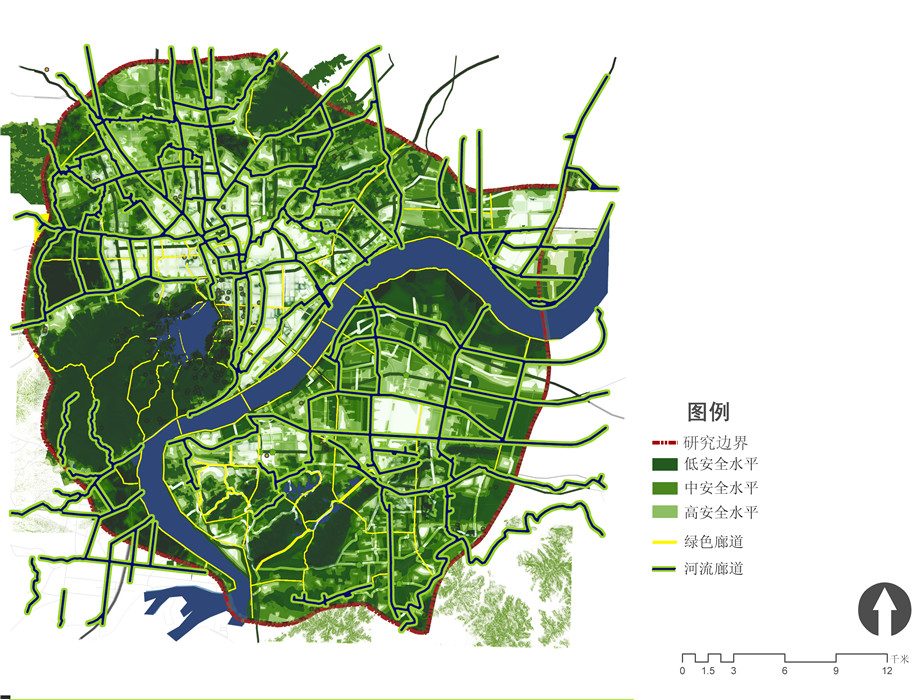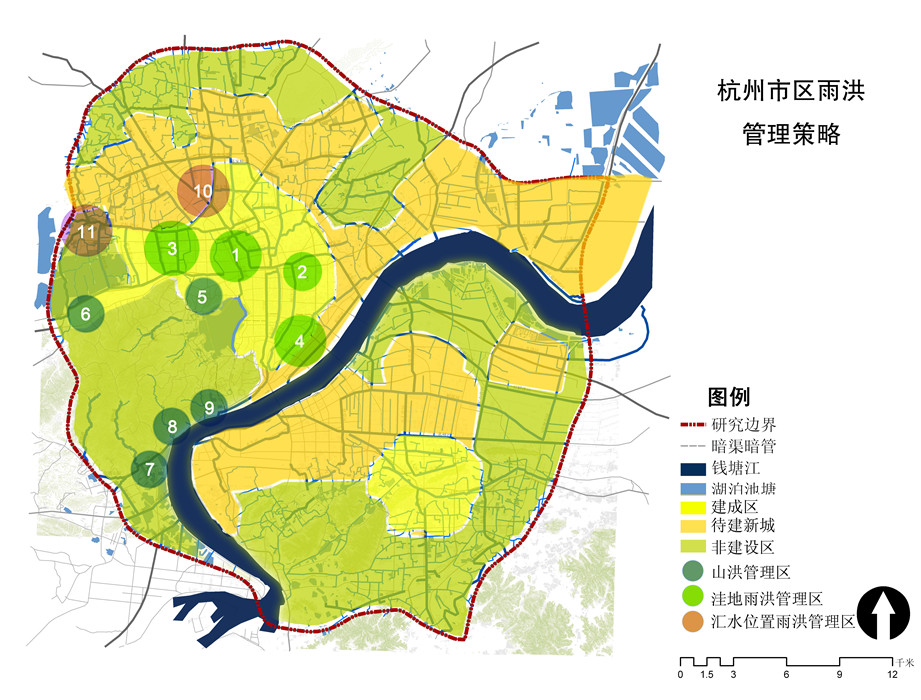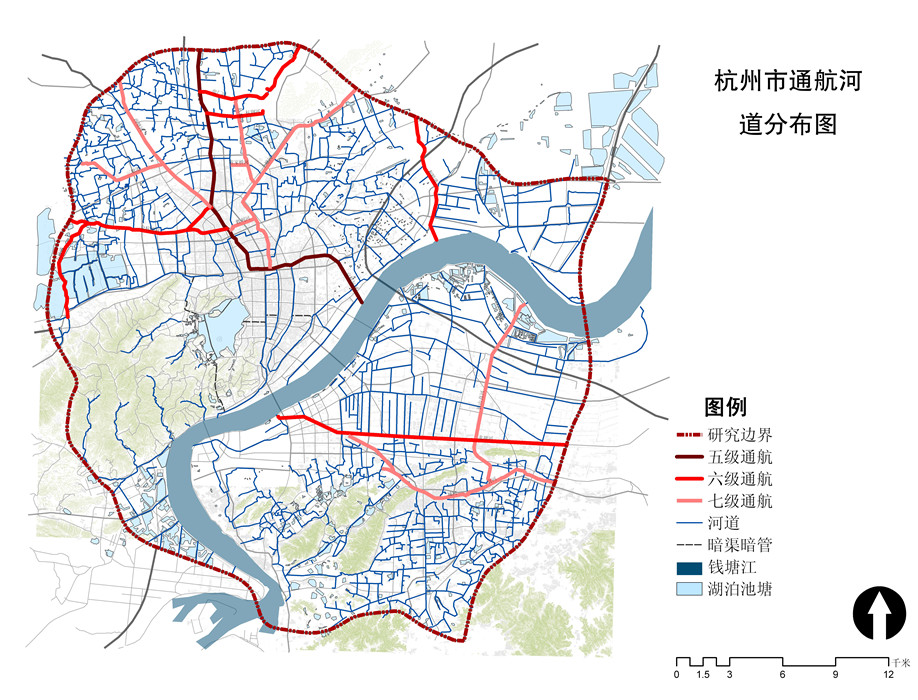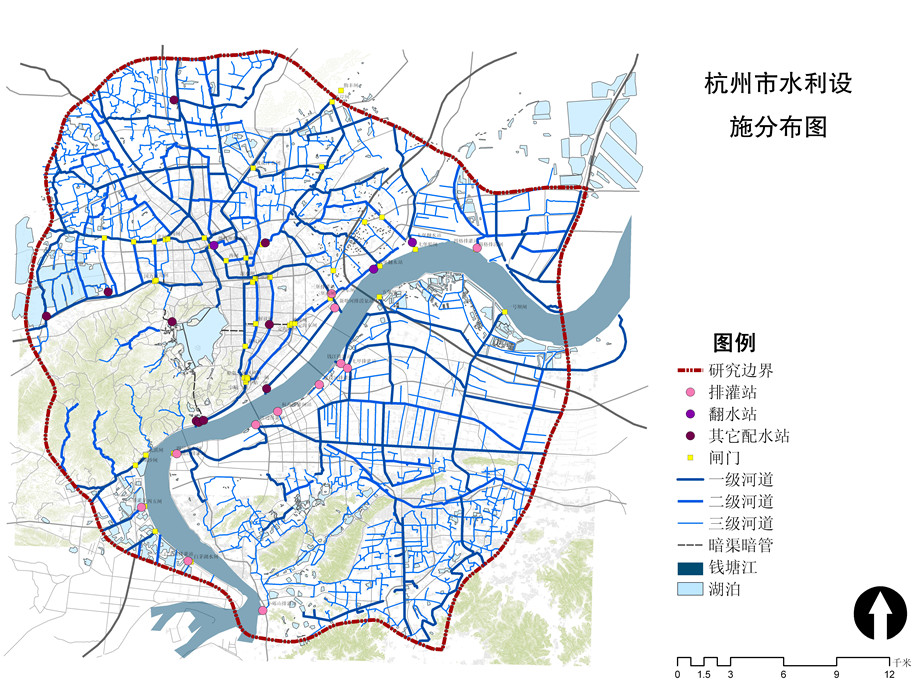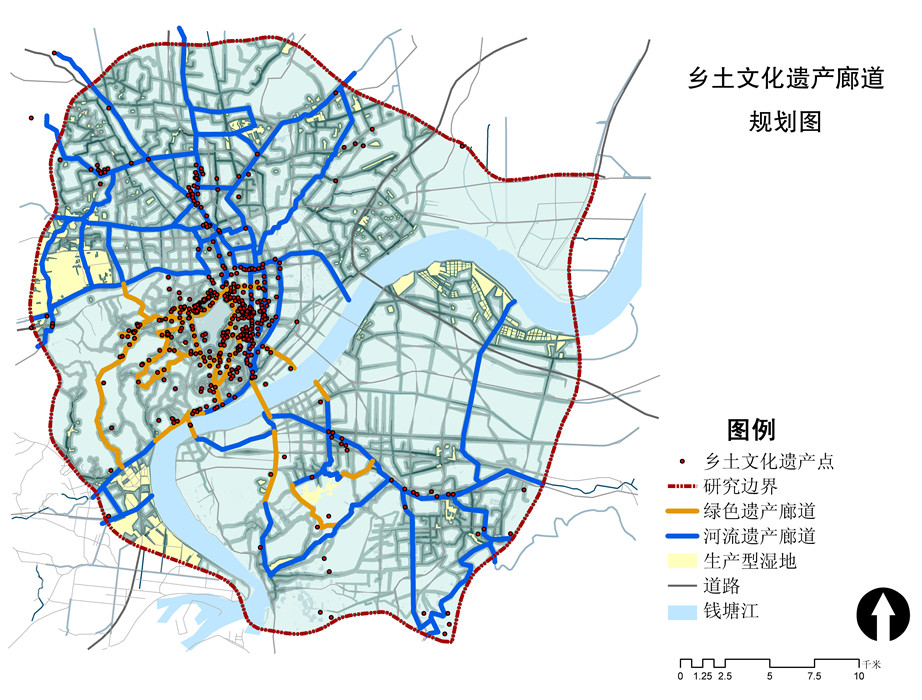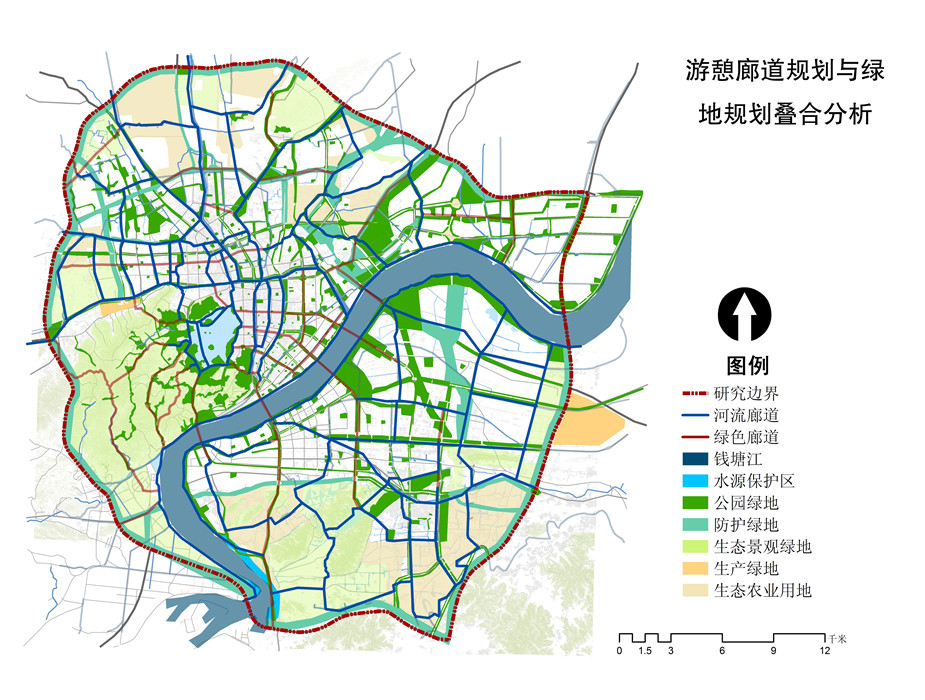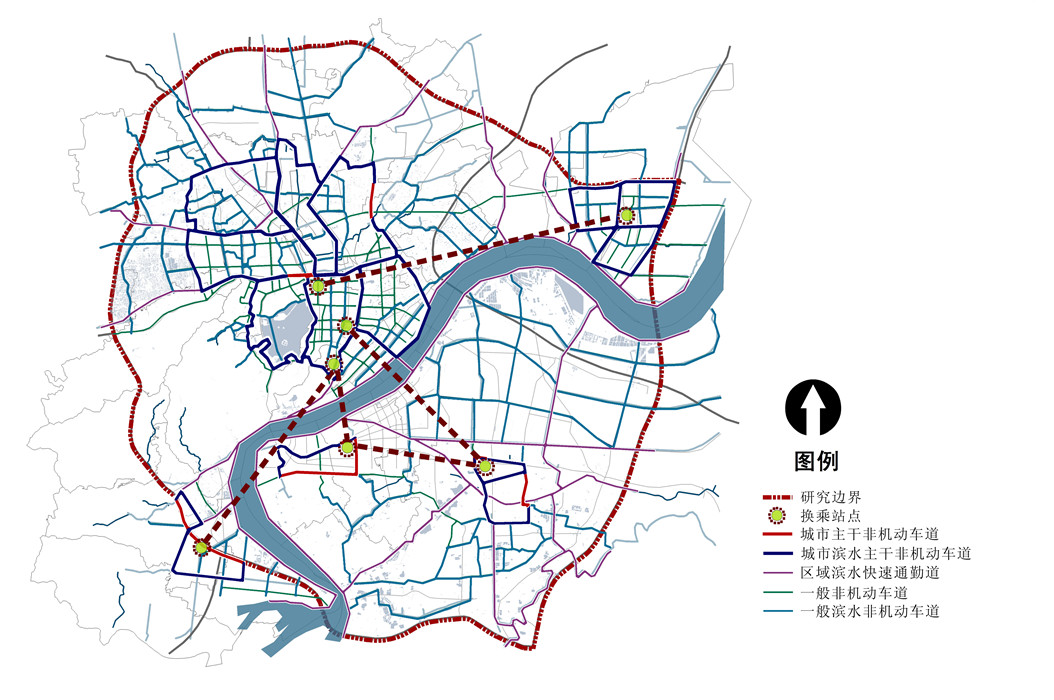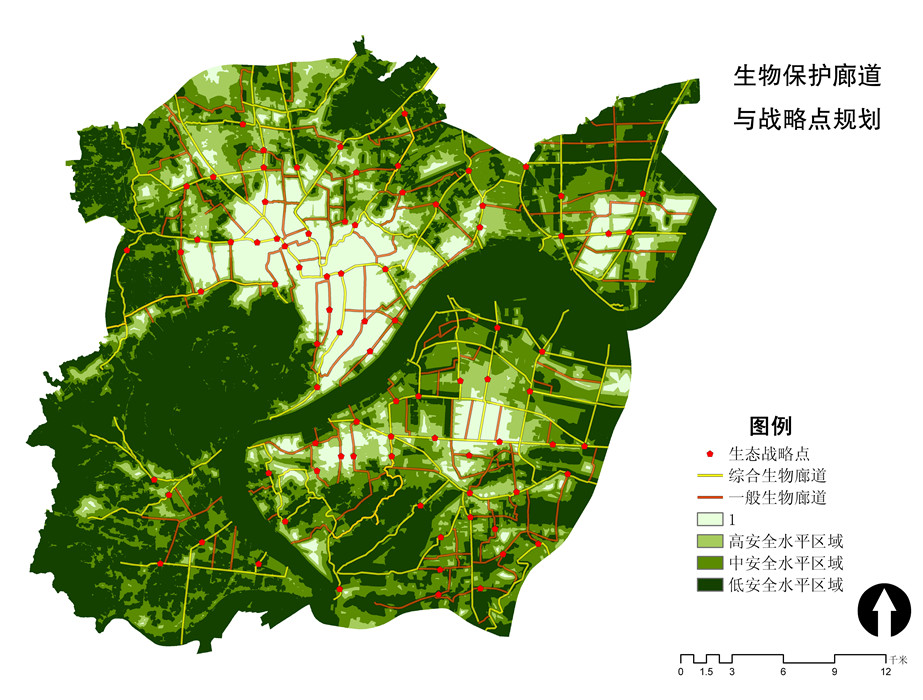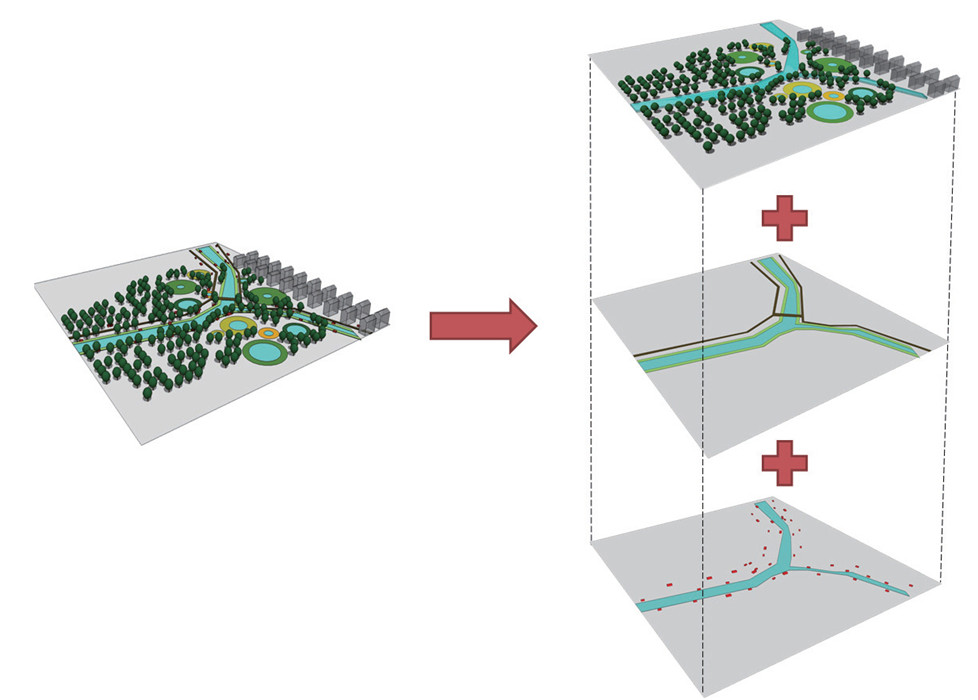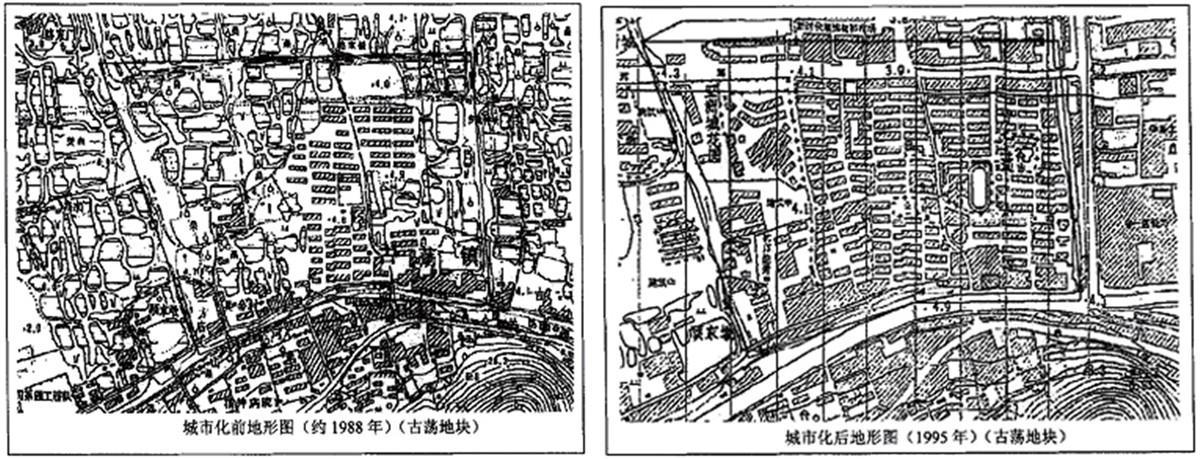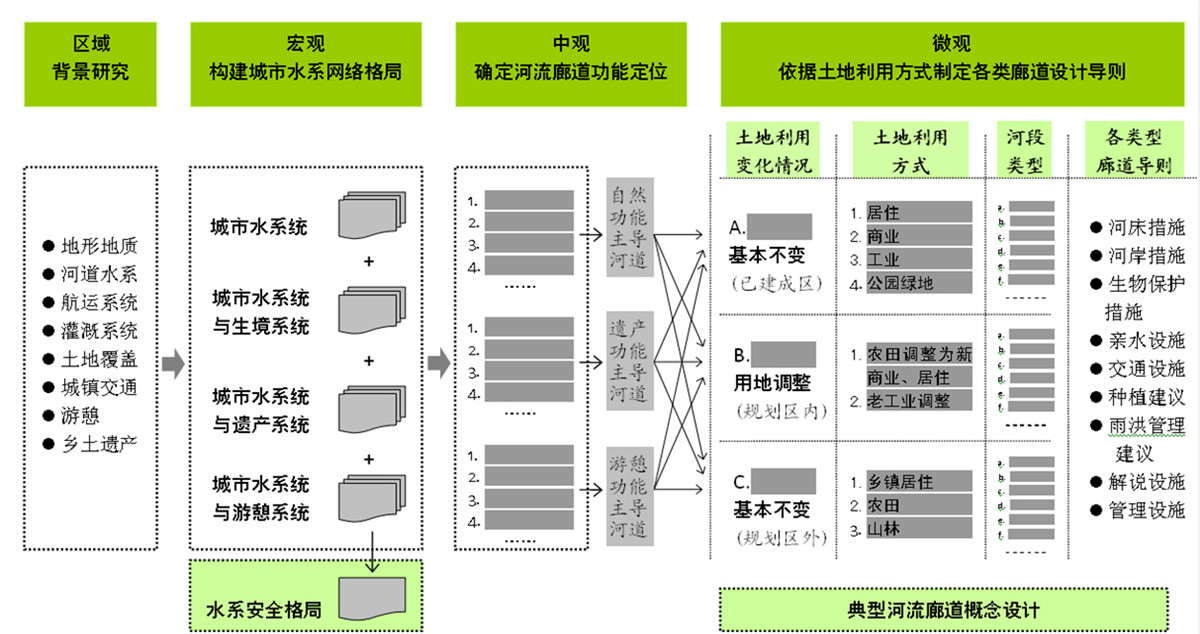Hangzhou Water Systems Planning Research
Project Information
- Project Location:
- China Hangzhou, Zhejiang
- Project Scale:
- 930 Square Kilometers
- Design Time:
- July 2007
Project Profile
"Return to the Riverside"
Guided by ecological principles, this study aims to maintain, protect, and restore the ecological health of water systems, meeting the citizens' needs for cultural and recreational experiences in waterfront spaces. The goal is to make the construction of Hangzhou's urban water systems a model of human-water harmony characteristic of the ecological civilization era.
Macro Level
Construct regional ecological infrastructure, forming a network pattern with water systems as the framework to achieve ecological health and safety of water systems.
Meso Level
Use ecosystem services as the core value standard to re-evaluate the functions and roles of water systems as important ecological infrastructure in Hangzhou, clarifying the positioning of various rivers within the urban area.
Micro Level
Apply principles of ecological restoration and design to systematically classify Hangzhou's water systems based on land use patterns. Explore construction models for various types of rivers, enabling the return of residents' life and leisure, vegetation growth and succession, and animal habitation and reproduction to the riverside, achieving harmonious human-water relations.
(1) Re-evaluating the Value of Urban Water Systems
People's understanding of urban water systems is generally superficial, lacking deep recognition of their ecological services and the significance of water ecosystem health. This ignorance has led to traditional river regulation projects that recklessly destroy water ecosystems. This plan focuses on the ecosystem services of water systems, re-examining the value and functions of urban water systems. This not only aligns with the policy of building an environmentally friendly and harmonious society but also marks the beginning of an era of ecological civilization, changing traditional water system regulation measures.
(2) Improving Traditional Water System Regulation and Planning
Compared with traditional water system regulation plans, this plan has the following features:
Shifting from the traditional engineering values of the industrial age to the ecological service values of ecological civilization.
Transitioning from a single scale to a multi-scale system.
Moving from a single water management goal to a multi-objective comprehensive utilization of waterfront spaces.
Focusing not only on the river itself but also on the relationship between rivers and various urban systems.
(3) Forming a Comprehensive Ecological Research Methodology
The research centers on ecosystem services and the water system, exploring its relationships with biological habitats, heritage systems, and recreational systems. It conducts systematic research and planning design from the macro level of the urban and watershed scale, the meso level of the river scale, and the micro level of the river segment scale, forming a complete system.
(4) Utilizing Advanced Technology for Innovation
The research employs advanced technical methods such as Geographic Information Systems (GIS), ensuring the accurate implementation of innovative concepts.
(5) Producing Practical and Operational Research Outcomes
The ultimate goal of this research is to produce a practical manual that facilitates operation and implementation. This manual will be a convenient reference for urban administrators and construction managers, providing a practical guide for further planning and design by relevant units.
